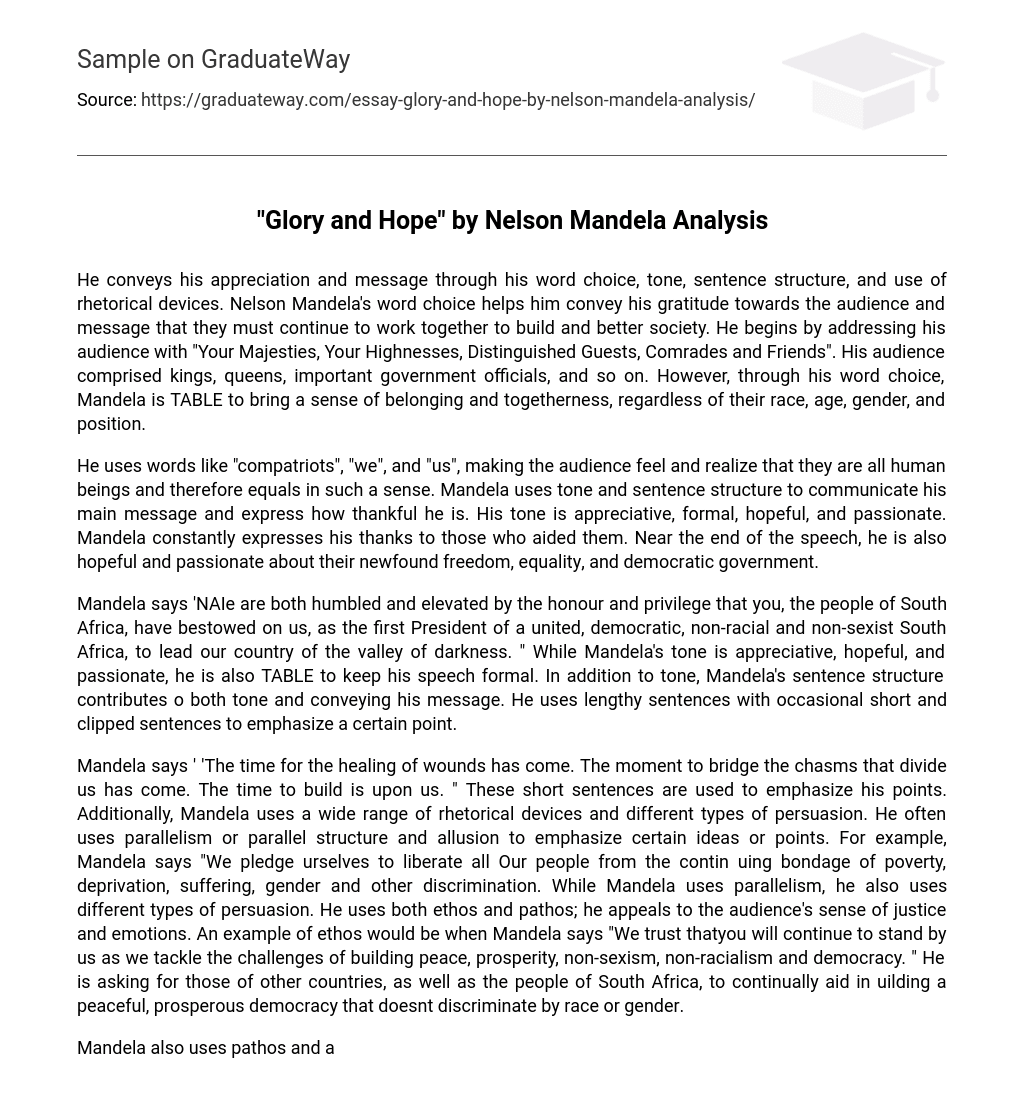He conveys his appreciation and message through his word choice, tone, sentence structure, and use of rhetorical devices. Nelson Mandela’s word choice helps him convey his gratitude towards the audience and message that they must continue to work together to build and better society. He begins by addressing his audience with “Your Majesties, Your Highnesses, Distinguished Guests, Comrades and Friends”. His audience comprised kings, queens, important government officials, and so on. However, through his word choice, Mandela is TABLE to bring a sense of belonging and togetherness, regardless of their race, age, gender, and position.
He uses words like “compatriots”, “we”, and “us”, making the audience feel and realize that they are all human beings and therefore equals in such a sense. Mandela uses tone and sentence structure to communicate his main message and express how thankful he is. His tone is appreciative, formal, hopeful, and passionate. Mandela constantly expresses his thanks to those who aided them. Near the end of the speech, he is also hopeful and passionate about their newfound freedom, equality, and democratic government.
Mandela says ‘NAIe are both humbled and elevated by the honour and privilege that you, the people of South Africa, have bestowed on us, as the first President of a united, democratic, non-racial and non-sexist South Africa, to lead our country of the valley of darkness. ” While Mandela’s tone is appreciative, hopeful, and passionate, he is also TABLE to keep his speech formal. In addition to tone, Mandela’s sentence structure contributes o both tone and conveying his message. He uses lengthy sentences with occasional short and clipped sentences to emphasize a certain point.
Mandela says ‘ ‘The time for the healing of wounds has come. The moment to bridge the chasms that divide us has come. The time to build is upon us. ” These short sentences are used to emphasize his points. Additionally, Mandela uses a wide range of rhetorical devices and different types of persuasion. He often uses parallelism or parallel structure and allusion to emphasize certain ideas or points. For example, Mandela says “We pledge urselves to liberate all Our people from the contin uing bondage of poverty, deprivation, suffering, gender and other discrimination. While Mandela uses parallelism, he also uses different types of persuasion. He uses both ethos and pathos; he appeals to the audience’s sense of justice and emotions. An example of ethos would be when Mandela says “We trust thatyou will continue to stand by us as we tackle the challenges of building peace, prosperity, non-sexism, non-racialism and democracy. ” He is asking for those of other countries, as well as the people of South Africa, to continually aid in uilding a peaceful, prosperous democracy that doesnt discriminate by race or gender.
Mandela also uses pathos and appeals to the audience’s emotions. Mandela says ‘ ‘That spiritual and physical oneness we all share with this common homeland explains the depth of the pain we all carried in our hearts as we saw our country tear itself apart in a terrible conflict, and as we saw it spurned, outlawed and isolated by the peoples of the world… “





